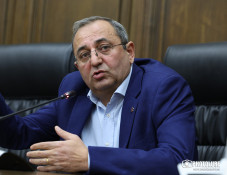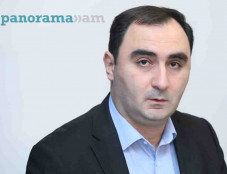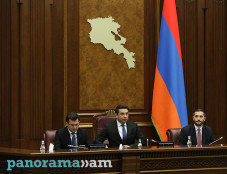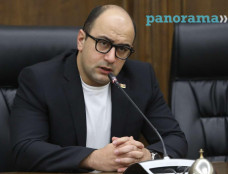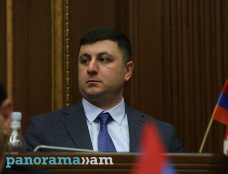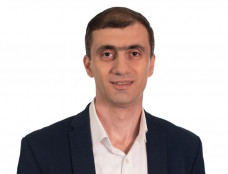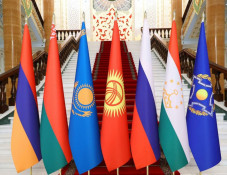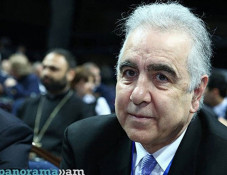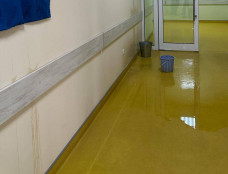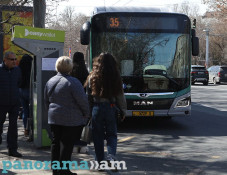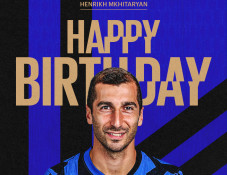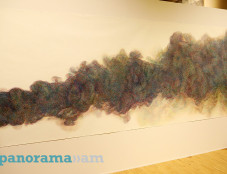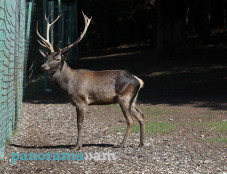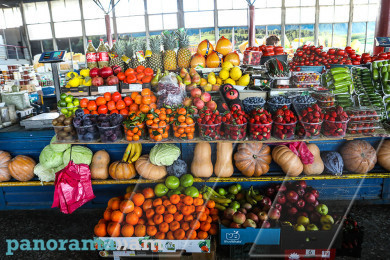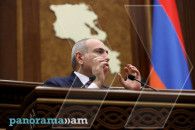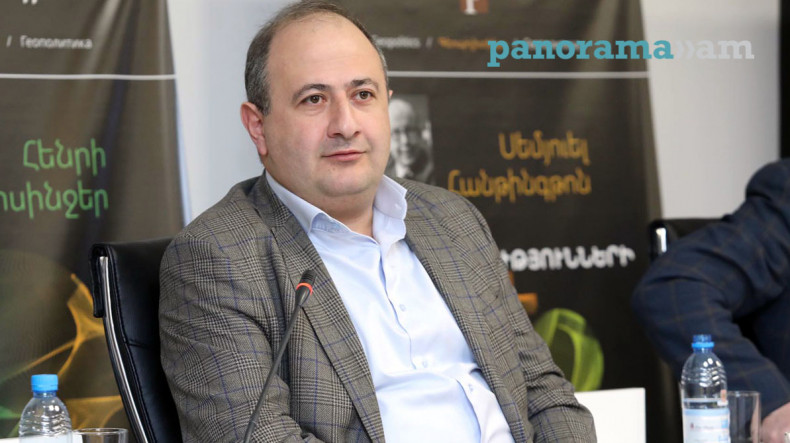
Armenian expert reveals key messages of Erdogan's latest statement
Turkish President Recep Tayyip Erdogan, who is seeking a third consecutive term in office in presidential elections in May, unveiled his party’s policies in case of winning the upcoming elections. In particular, Erdogan said the authorities in Ankara “will not allow the country to be dragged into a war.”
Panorama.am has talked to Doctor of History, Professor Ruben Melkonyan, who heads the YSU Faculty of Oriental Studies, about Erdogan's statement, Turkey’s presidential and parliamentary elections scheduled for May 14, as well as the candidates favored by the Turkish Armenian community.
Panorama.am: Turkey has been involved in all wars so far, from using mercenaries, providing officers and military equipment, to launching military offensives, and now, if re-elected, Erdogan says he will not allow Turkey to be dragged into a war. What does Erdogan have in mind when he makes such statements? Does he simply want to please the people, or are his challengers more radical and make calls for war at an election period?
Ruben Melkonyan: Erdogan's statement can be viewed from at least three perspectives and, of course, in the light of historical background.
Turkey joined NATO in 1952 and took part in the Korean War, where 2,500 people were killed. This Korean War has left a negative impact on Turkish society in terms of undue involvement in the wars of others. The participation in this "senseless" war has a certain perception in Turkish society and political life. Erdogan's statement is primarily addressed to his domestic audience, claiming that Turkey is on an equal footing with the West and will no longer participate in wars not directly related to it sought by the West and will not suffer casualties as a result of participation in other wars.
The next observation is that Turkey distinguishes between its "own wars" and "foreign wars." Turkey’s own wars include attacks on Syria, Iraq or Cyprus, but those wars fought by NATO or its Western allies are considered foreign, and Turkey avoids direct involvement in them as much as possible.
I guess Erdogan's statement also refers to the Russian-Ukrainian war and is a response to Western pressure on Turkey to step up its military support for Ukraine. And, of course, we can also consider this as a sign of reverence, a positive message to Russia. Erdogan’s statement is absolutely clear and acceptable to Turkish society.
Turkey, indeed, has always tried to fight through mercenaries or other means, but as far away from its borders as possible. Even when Turkey helped the U.S. in the war with Iraq or, even earlier, with Egypt and others, it tried to be as careful as possible. For example, it allowed the use of its airports, but avoided deploying Turkish troops to a place where the U.S. or NATO waged a war.
Given Iran's active efforts in the recent period, Erdogan's statement could also include a message to Iran, since Iran's statements about Azerbaijan and, for example, a possible clash between Iran and Azerbaijan, imply Turkey’s direct involvement in it to support its ally Azerbaijan. Consequently, Erdogan's position is that he will try to prevent an escalation of tensions between Iran and Azerbaijan and a possible war.
Nor can we overlook the special Turkish-Israeli relations and the tensions between Iran and Israel in this light.
In other words, Erdogan's statement can be called multi-vector, addressed both to foreign and domestic audiences. At the same time, it is aimed at strengthening Turkey's vital interests once again. In essence, the statement is addressed to the United States, the West, Russia, Iran and Turkey's domestic audience. This is a highly saturated message.
Panorama.am: Is Erdogan more belligerent or more radical compared to other candidates?
Ruben Melkonian: This is an extremely important question. His main challenger, opposition candidate Kemal Kilicdaroglu is considered to be a more understandable and acceptable candidate for the West and the United States. Erdogan’s message to his domestic audience is that if Kilicdaroglu were to win the elections, Turkey could be involved into various wars by the order of the United States as he is “so weak and unable to resist the U.S.”
The message is as follows: if the opposition wins, Turkey will more easily comply with U.S. orders to join a war, but now Turkey, led by Erdogan, is resisting it and even after strong calls from his NATO partners will not step up its participation in various conflicts far from itself.
The other side of the coin is that his rhetoric is more bellicose than that of the other candidates when it comes to attacks on Artsakh, Iraq, Syria, but it should be realized that these are Turkish wars and fought for Turkey's interests.
In other words, Erdogan's rhetoric is bellicose in those wars that are considered "their own, Turkish," and more restrained in those wars that are considered "foreign”, i.e. the wars involving NATO and the United States. Meanwhile, he accuses the opposition of being meek and succumbing to the calls of the United States and NATO to join other wars.
Panorama.am: I guess none of the candidates is preferable for Armenia.
Ruben Melkonyan: Of course, no Turkish authorities, president or political force can have a different stance on Armenia and the country continues to be targeted by Turkey, with all ensuing consequences.
Panorama.am: So, whoever is the president, they will stick to the same policy?
Ruben Melkonyan: Presumably yes, except for some minor changes. I believe the general policy line will remain unchanged for Armenia, including the military aggressive conduct.
Panorama.am: Do the Armenians living in Turkey have a favorite candidate?
Ruben Melkonyan: The approaches of the Armenians in Turkey are traditional, even somewhat predictable. The more active part of the community will vote for the left-wing Peoples' Democratic Party (HDP) which Garo Paylan members. Journalists and those rallying around the Agos daily will most likely support and vote for the left-wing forces, primarily Garo Paylan’s party.
A part of the Armenian community supports the government and always votes for the ruling team, in this case for candidate Erdogan and his alliance. They make up the so-called oligarchy of the community rallying around the Armenian Patriarchate.
The other part of the community may vote for the opposition Republican People's Party, especially since its leader is taking some steps to address the minorities and ethnic communities in Turkey.
The distribution of votes in the Armenian community has almost always been like this.
Panorama.am: Thank you.
Newsfeed
Videos





